Episode 5 | Water
In the EARTH A New WIld final episode, Sanjayan explores humankind’s relationship with the Earth’s most important resource: water. Unraveling dramatic connections between fresh water and the health of the planet, he uncovers spectacular wildlife stories that center on managing the natural pulse of the planet’s water.
Previews + Extras
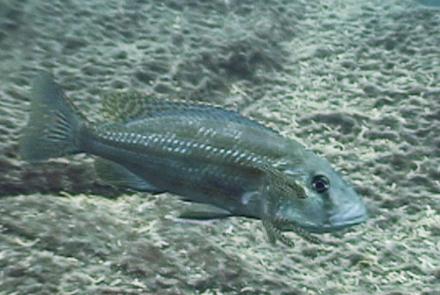
Wonderful Cichlids: Mouth Breeders
S1 E5 - 32s
Lake Malawi has an incredible 850 endemic species of fish found nowhere else on earth, almost all of them some kind of Cichlid. Cichlids have evolved into thousands of different species far quicker than it took apes to evolve into just three species. This particular species has learned to hold all of its’ young in its’ mouth to keep them safe.
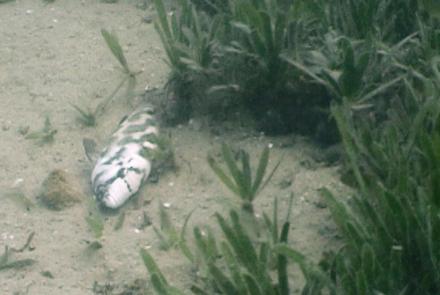
Wonderful Cichlids: Playing Dead
S1 E5 - 21s
Lake Malawi has an incredible 850 endemic species of fish found nowhere else on earth, almost all of them some kind of Cichlid. Cichlids have evolved into thousands of different species far quicker than it took apes to evolve into just three species. This fish plays dead in order to attract other fish then eats the fish who come and investigate. Video courtesy of Jay Stauffer.
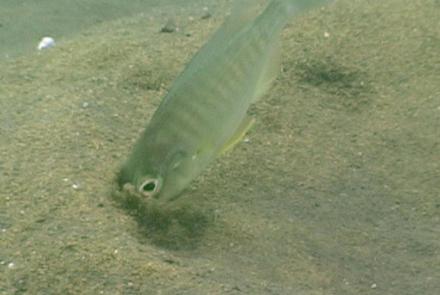
Wonderful Cichlids: Eating Dirt
S1 E5 - 1m 3s
Some species of cichlid, which eat tiny insects and crustaceans, will swallow mouthfuls of sand. They then suck out animals like microscopic shrimp and filter out a cloud of sand through their gills. Video courtesy of Jay Stauffer.
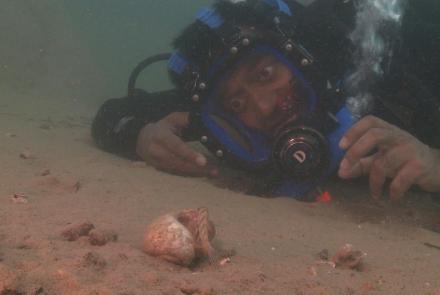
Wonderful Cichlids: A Cichlid's Shell Is His Castle
S1 E5 - 24s
It’s not just for feeding that cichlids have evolved some bizarre behavior, it’s also for the business of reproduction! During breeding and mating cichlids also display some unusual adaptations, they build arenas out of sand that males will dance in or other species will use a shell as a home. Sanjayan comes across one individual who has made his home in a shell.
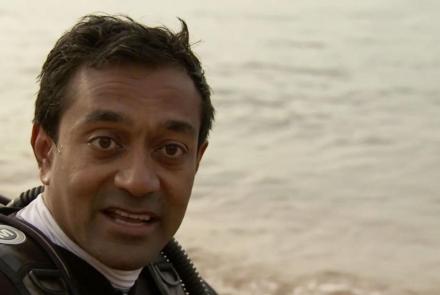
A Natural History Detective Story: Encountering a Snail
S1 E5 - 32s
In Lake Malawi Bilharzia parasites grow and develop inside snails. The parasite can penetrate the skin of people wading, swimming, bathing, or washing in contaminated water. Within several weeks, worms grow inside the blood vessels of the human body and produce eggs and make the person sick. Unfortunately the cichlid which eats these snails has been overfished so the problem is growing.
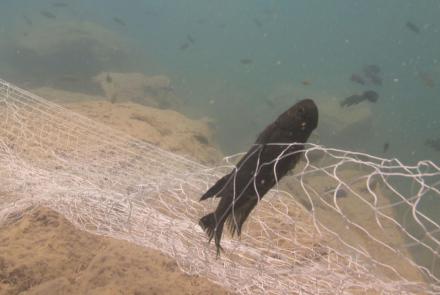
A Natural History Detective Story: A Shallow Water Problem
S1 E5 - 1m 11s
Bilharzia is a parasite transmitted to people via a water snail found in Lake Malawi. Normally these snails are not found in the shallows where people who lived by the lake bathed and washed but something had changed. Expert scientist, Jay Stauffer found the shallows were infested with the snails and the snails were infested with the Bilharzia parasite. And the ultimate problem was over fishing.
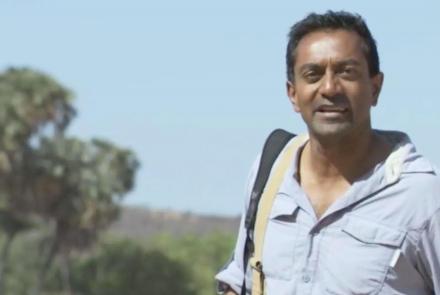
Sanjayan Gets Snapped
S1 E5 - 1m 3s
Filming the Singing Wells sequence of the Water episode of the series was done in the dry season in Kenya. While Sanjayan was waiting between takes, a local Samburu tribesman used his mobile phone to photograph Sanjayan. He contemplates how the Samburu's tradition of digging wells is for good reason and that it’s not because the tribesmen are not aware of other options to water their cattle.

Next on Episode 5 | Water
S1 E5 - 30s
Sanjayan explores humankind’s relationship with the Earth’s most important resource: water. Unraveling dramatic connections between fresh water and the health of the planet, he uncovers spectacular wildlife stories that center on managing the natural pulse of the planet’s water.
Similar Shows

Expedition
Science and Nature

Project Asteroid: Mapping Bennu
Science and Nature

The Gene
Science and Nature

Pathways to Invention
Science and Nature

Human Footprint
Science and Nature

Richard Bangs' Adventures with Purpose
Science and Nature

Beauty on the Wing: Life Story of the Monarch Butterfly
Science and Nature

Breakthrough: The Ideas That Changed the World
Science and Nature

Star Gazers
Science and Nature

Animal Babies: First Year on Earth
Science and Nature
WETA Passport
Stream tens of thousands of hours of your PBS and local favorites with WETA Passport whenever and wherever you want. Catch up on a single episode or binge-watch full seasons before they air on TV.